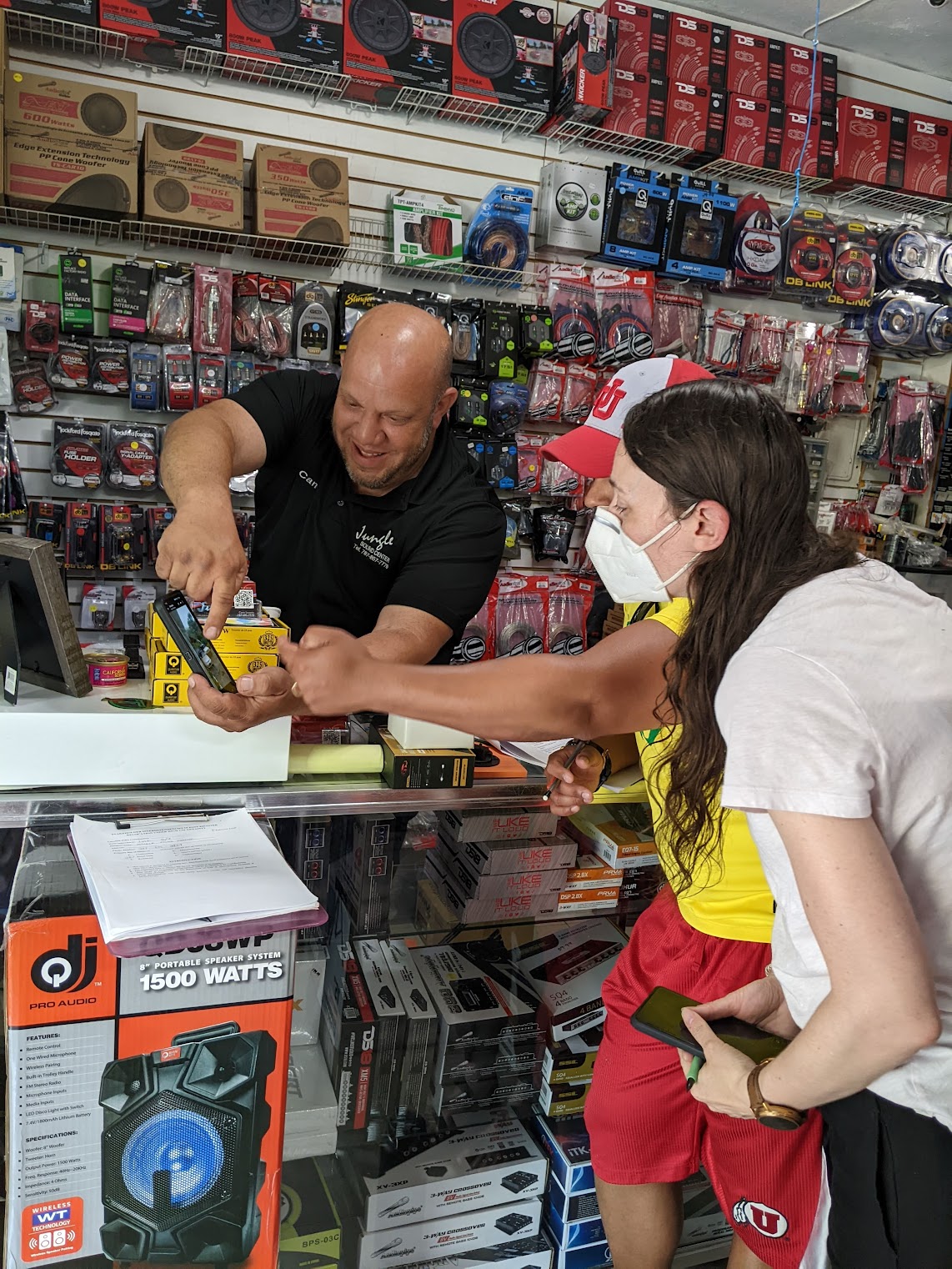Project Background
The study's aims are to examine the following in highly uncertain post-disaster environments: (i) resources businesses use to make relocation decisions; (ii) the inter-dependencies between business relocation decisions and other stakeholder decisions; and, (iii) investigate the dependence of business relocation decisions upon the actions of nonprofits or volunteer groups.
The business survey involves conducting face-to-face surveys of 60-70 businesses within each of the two case study communities. This survey is done using convenience sampling in the communities. We have a survey conducted in 2022 that will be followed up with in summer 2023. Surveys will be conducted in Spanish or English based on the preference of the business owner. Survey questions will cover topics such as the operational status of business, disaster impact, housing status of business owners, relocation/reconstruction or business closure decisions, formal participation in the official relocation program, recovery financing, and interaction with peers and other stakeholders.
This study advances scientific knowledge of the factors that affect community relocation decisions of businesses in highly uncertain and emergent institutional environments. Its findings will promote effective and equitable community relocation planning practices by providing insights to planners and policymakers on how policy decisions affect relocation experiences in underserved communities. The study will also document the successes and failures of Puerto Rico's Repair, Reconstruction, or Relocation Program (R3) program, which can inform and improve future post-disaster relocation programs in the U.S. and abroad. Lastly, will enhance different stakeholder's understandi
Student Role
Students will assist in developing survey questionnaires, translating into Spanish (if possible), collecting data through field surveys in collaboration with a multi-university project team and to analyze the data once collected. Travel to Puerto Rico is required for this project as well as presentation of the survey results at a disaster resilience symposium in Fall 2023.
Students will stay in San Juan Puerto Rico for a duration of two weeks in late May/early June and travel with the project team to the two communities (one week at a time) to collect data. The survey is typically conducted in pairs with at least one Spanish-speaking surveyor assigned to each team. Surveyors record the GPS location, address and telephone number of each business and then proceed to survey the business on paper or directly into survey software.
Students are often introduced to various business owners, municipal and other government officials, and nonprofit executives as part of the fieldwork. They also get to participate in any field tours arranged as part of the visit. Students also often get to interact with students from other universities who are visiting Puerto Rico as part of their own course/project work. Students can also pair the field work with extended visits to Puerto Rico and other parts of the Caribbean.
All students involved in this project will be required to complete field research training modules designed by the CONVERGE Training project of the Natural Hazards Center at CU Boulder and IRB training at the University of Utah.
Student Learning Outcomes and Benefits
Students who participate in this study gain the following knowledge and skills:
- Firsthand experience with helping disaster-affected communities to recover from disasters.
- Knowledge of challenges and opportunities presented by disaster recovery in small, resource-challenged communities.
- Meet a diverse set of local stakeholders who facilitate disaster recovery and learn about their specific challenges.
- Learn about the challenges and opportunities of conducting fieldwork.
- Learn to collect data ethically and with empathy in trauma-affected communities.
- Learn about survey methods, including survey design, data collection and data analysis.
- Learn to work collaboratively in teams with other students and researchers.
Participation in this study has helped prior participating students in their job search and/or applications to higher education programs. Other students have also used the data collected through this project for their capstone projects.

Divya Chandrasekhar
My mentoring philosophy is to provide support and education tailored to the student's interests. This is done through small discussion or though self-exploration (online or in the field). I believe fieldwork is critical experience for students that want to work in disaster management or an allied profession, and I work to make this field experience as fulfilling as possible.
While in the field, the project team (including myself) is in constant contact with the student which allows for free and easy communication and learning. I emphasize independent growth and learning but always provide help and support as needed. Once the team has returned to Salt Lake City, we meet regularly through lab meetings that also includes other students working on other research projects under my supervision. This allows for networking opportunities with other students, builds a sense of community among the students, and helps build knowledge of the broader field within which all these studies are located.
I have a passion for learning myself and educating others, and I love encouraging my students to develop a similar passion in the field of their choice!
